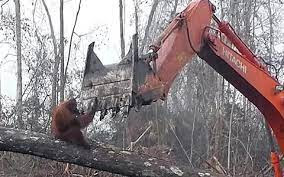'Go! Tell them the Cross is a Tree again, and they
may eat the fruit if they can reach the branches.'
I.
If you ask your local council why it is that they savagely pollard the remaining large trees each spring, they will tell you it's for a variety of reasons; mostly related to issues of public health and safety and the protection of property, although often they claim it's in order to protect the trees themselves from disease.
But I think we all know that this is mostly to disguise the real agenda; namely, to discourage birds from nesting and, ultimately, to remove the trees altogether and thereby save the money that would otherwise be spent on their management. The potential hazard posed by large trees is massively exaggerated (I have lived in Essex for many years and have never yet been injured by a falling branch).
II.
Let's back this up with some data, shall we ...
The London Borough of Havering, which happens to be my local authority - one which last year had to secure £54 million in central government support to avoid going bankrupt and who earlier this year accepted another £88 million bailout loan as their dire financial state worsened - has seen the biggest reduction in tree cover of any London borough in the last seven years (this according to a recent report for the GLA).
In 2018, Havering had 25% tree coverage (above the London average); but by 2024 it had fallen to just 14% (below the London average). The fact that in December 2023 the Council accidently cut down 4,000 young trees at Harrow Lodge Park planted by volunteers - along with a number of more mature treees and five holly bushes - didn't help.
Havering Council, however, claim they do not recognise the data in this report and say that there has been no net loss of trees in the last ten years on council land ... And maybe that's so; but the big loss, of course, is of trees that once stood on private land as more and more people cut them down in order to build on or simply pave over what were once gardens.
Thus, it's not simply the Council who are to blame for the degreening of Havering. A large number of residents - many of whom only arrived in the Borough in recent years - clearly do not value the local flora or fauna and concepts such as environmental degradation and protecting wildlife mean absolutely nothing to them. So long as they can have their extensions and driveways and outbuildings, they are happy.
III.
For me, pollarding might be viewed as a form of hate crime born of a peculiar fear of trees (dendrophobia).
And if I could, I would have all maniacal dendrophobes and other ecocidal lunatics rounded up and exiled on Mars before they transform this world into a barren and inhospitable hellscape in which no birds do sing and no flowers blossom.
But, as it's Easter, let's close on an epicormically positive note and express the hope that, one day, even the Cross will put forth new branches and bear surprisingly sweet fruit ...



